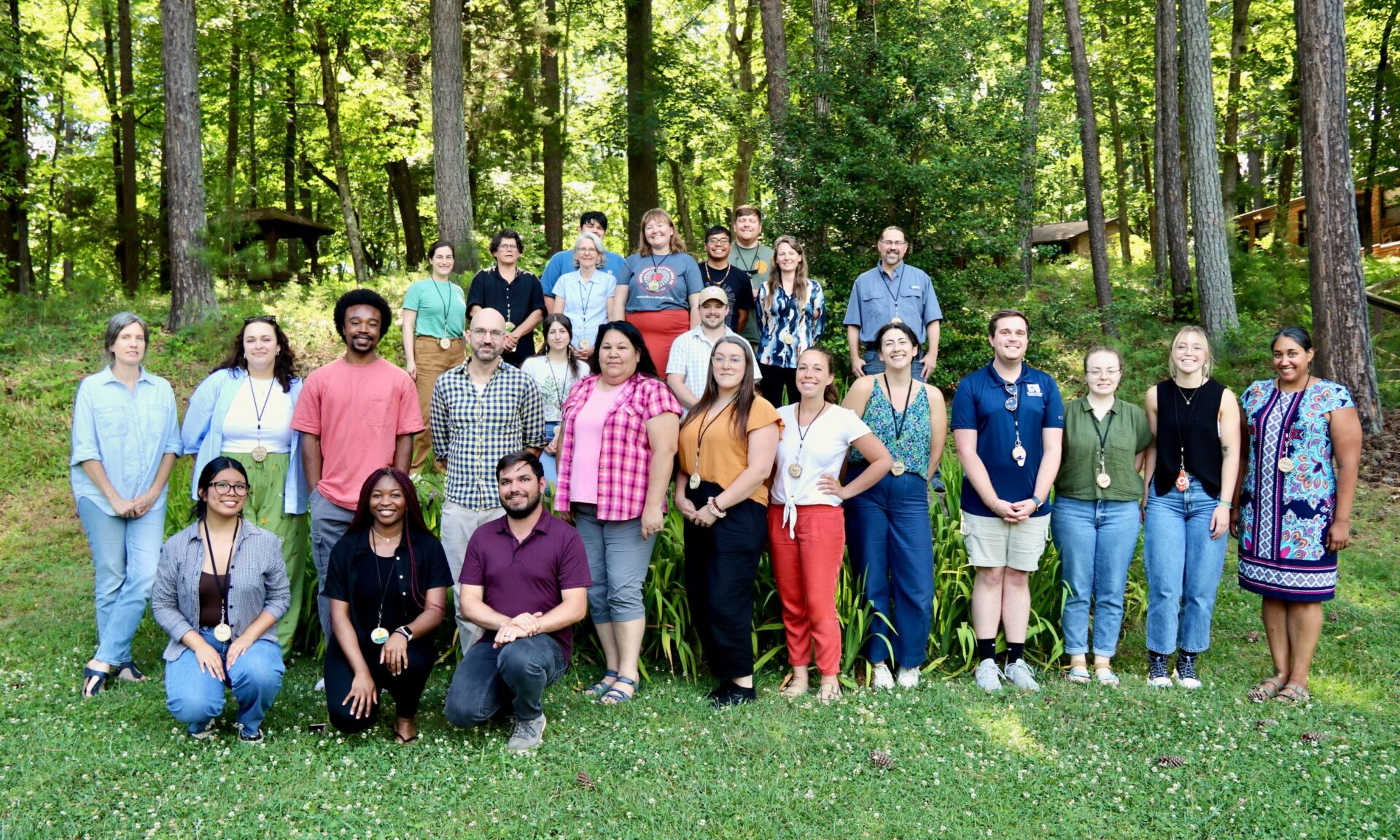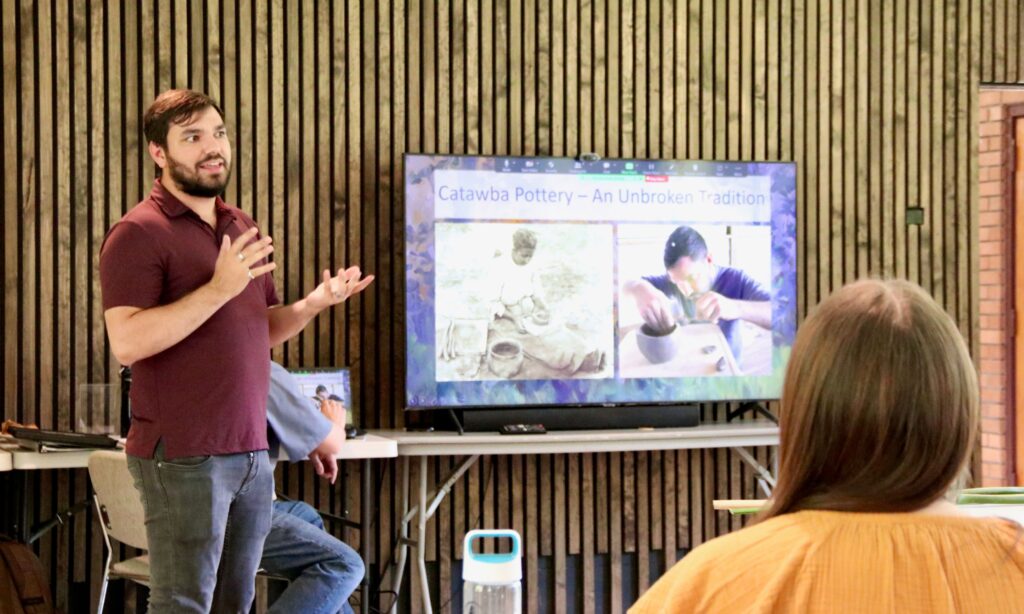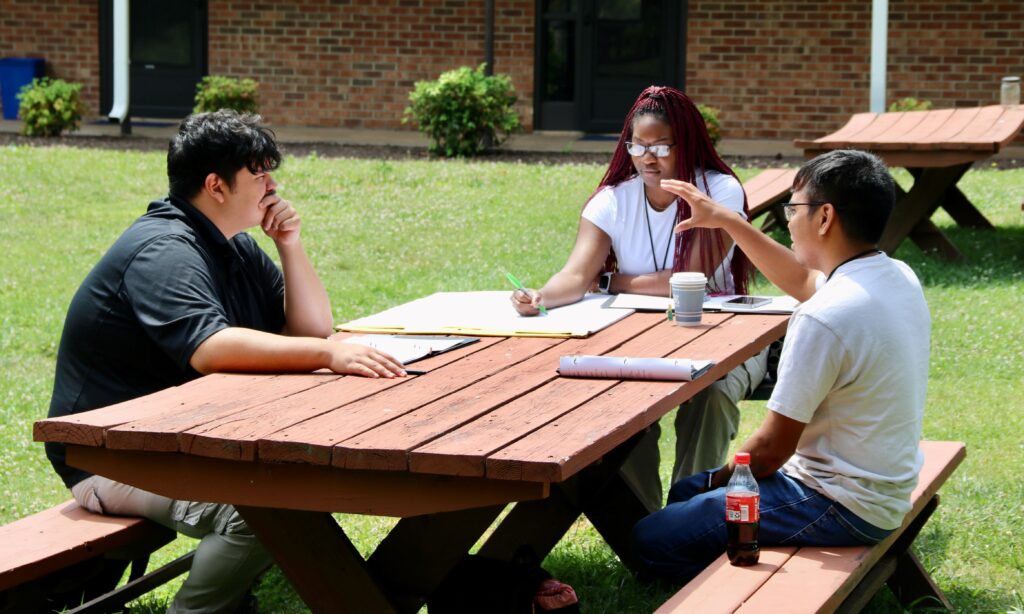From June 10 to 14, representatives from Tribal Nations, federal agencies, and Climate Adaptation Science Centers (CASCs) joined USET staff for the 2024 USET Tribal Climate Resilience Camp. Staff and partners from five USET member Tribal Nations participated in a week of presentations, team building, and breakout sessions to work on a climate resilience project or priority of each group’s choosing.

The week began with a keynote address given by Dr. Lara Jacobs, Postdoctoral Research Associate at Michigan State University and citizen of Muscogee (Creek) Nation. Dr. Lara Jacobs’ keynote presentation highlighted the profound historical impacts of genocide, ecocide, and land dispossession on Indigenous Peoples, ecosystems, and other non-human kin. She emphasized ongoing neocolonial practices, such as prioritizing profit over environmental responsibility. Jacobs showcased indigenous-led climate adaptation efforts as positive examples despite these major challenges. She raised concerns about the incorporation of Indigenous Knowledge in federal decision-making without adequate data sovereignty protections and urged a shift towards centering Indigenous Knowledge and sovereignty/data sovereignty in land management to transform power dynamics and achieve more equitable environmental stewardship. Her framework proposed moving from managing land ‘for’ or ‘with’ Indigenous peoples to management ‘by’ and ‘as’ Indigenous peoples.
The importance of land and culture were also woven into the curriculum through basketry demonstrations and stories shared by citizens of Catawba Indian Nation and Eastern Band of Cherokee Indians. In addition, staff from seven partner organizations and federal agencies gave presentations on resources, programs, successes, and funding opportunities related to Indigenous climate resilience.

The core of each climate camp is the breakout sessions in which each Tribal Nation team works on a project or priority that they bring to the camp. This year, teams chose to work on their funding strategies, adaptation plans, and planning the next steps for their climate resilience programs. Work sessions each day included support from USET and Northeast and Southeast CASC staff paired with teams based on interests and expertise. The week culminated with brief presentations from each team about their efforts and plans to continue their amazing work after the Tribal Climate Resilience Camp.

If you are interested in participating in similar events in the future, you can monitor the USET Climate Resilience Program website and/or email Steph at scourtney@usetinc.org to receive program updates.
